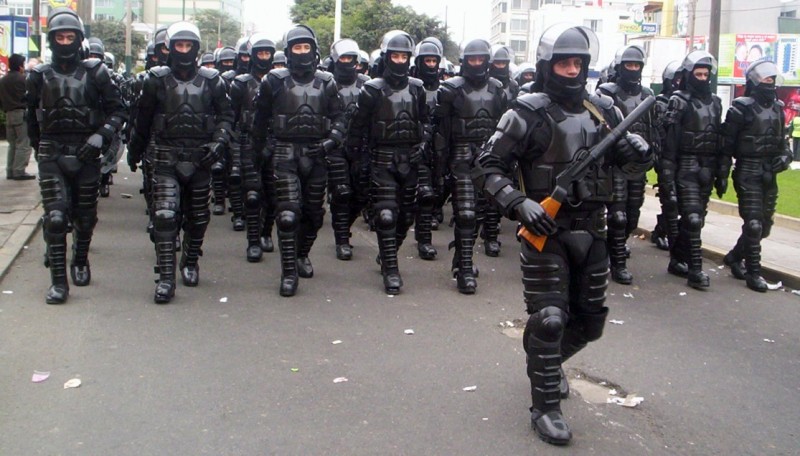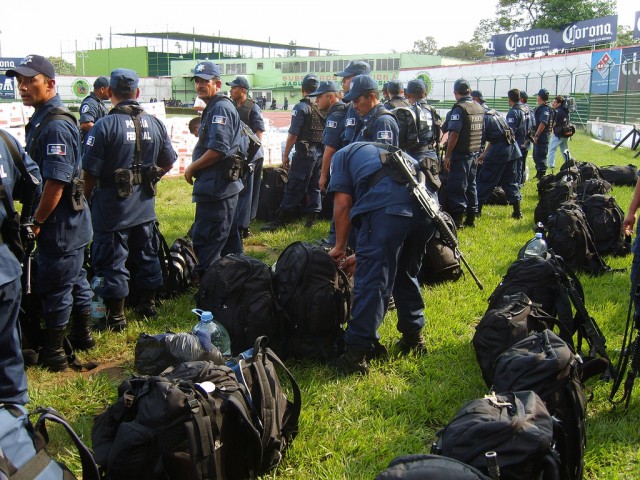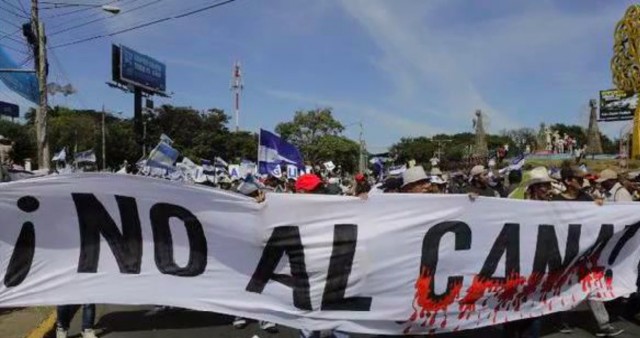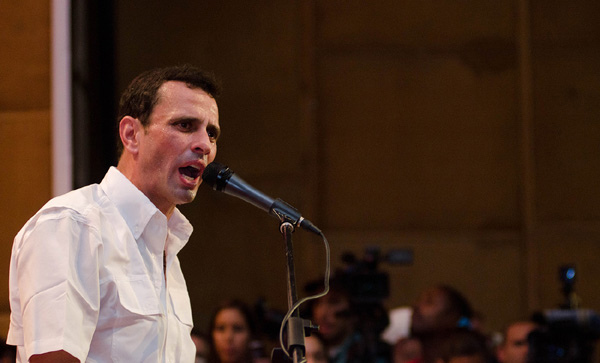
Central America, Honduras, Latin America: Week in Review
International Investigators Will Probe Honduras Corruption, Echoing Guatemala
September 29, 2015 By Staff
Top Story — The Organization of American States on Monday announced it will set up an international anti-corruption body in Honduras, following months of protests denouncing endemic graft.
OAS Secretary-General Luis Almagro announced the Mission to Support the Fight Against Corruption and Impunity in Honduras (MACCIH, in its Spanish initials) alongside President Juan Orlando Hernández, according to an OAS press release.
Hernández himself has been the repeated target of protests calling for his resignation based on charges he took campaign money in 2013 from companies accused of corruption.
Those protests coincided with similar demonstrations in Guatemala, which crested before the resignation and subsequent arrest of President Otto Peréz Molina, who was implicated in corruption by a similar body, the UN-supported International Commission Against Impunity in Guatemala, or CICIG.
MACCIH, the OAS press release said, will be led by an international attorney who will report to the OAS. In addition to investigating corruption, the body will evaluate Honduras’ justice system and recommend reforms.
The OAS was founded in 1948 by the United States, from which it receives most of its funding. The agenda of the multilateral organization, with some exceptions, has long been driven in large part by the United States, whose government has faced criticism for its continued support of Hernández’s administration, although it has also supported CICIG’s efforts, as Reuters notes.
Headlines from the Western Hemisphere
North America
- In an address to the United Nations General Assembly on Tuesday, Mexican President Enrique Peña Nieto called for a reform of the UN Security Council veto power, protection of migrant rights and a more humane approach to the global drug problem.
- Mexican authorities sent 200,000 students home in the state of Guerrero due to heavy rains from Hurricane Marty, which is stalled off the coast of Acapulco.
- The Bank of Mexico announced that the daily auctions of $200 million U.S. dollars will continue until the end of November in an attempt to arrest the devaluation of the peso.
Caribbean
- Ahead of British Prime Minister David Cameron’s upcoming trip to the island, Jamaican officials are calling for a public apology for British slavery and for Cameron to address the regional organization CARICOM’s calls for financial reparations.
- Cuban President Raúl Castro called for an end to the United States embargo on Cuba, a return of the U.S. Navy base at Guantanamo Bay and an end to what the Cuban government deems destabilizing activities by the United States in his address to the General Assembly on Monday.
- Haiti’s National Bureau of Electoral Litigation confirmed the results in nine of 139 legislative races from the country’s August 9 elections that were halted amid claims of violence and fraud.
Central America
- Salvador Estuardo González, a businessman implicated in the “La Linea” bribery scandal that brought down former Guatemalan President Otto Pérez Molina, revealed in court Monday that up to half of the bribes were paid directly to Pérez Molina and his ex-Vice President Roxana Baldetti.
- Alleged Mara Salvatruch gang member Cesar Amauri Cruz-Marin was deported from the United States to face triple murder charges in El Salvador, according to a press release by Immigration and Customs Enforcement.
Andes
- More than 1,500 Colombians who were deported from Venezuela following a crackdown by the government of President Nicolás Maduro will now be able to return and regain their status as legal residents, the Union of South American Nations announced on Monday. The border dispute that originated with the Aug. 19 shooting of Venezuelan police officers brought trade in the region to a standstill and led some 20,000 more Colombians to leave voluntarily, the United Nations estimates.
- Venezuela and Guyana, meanwhile, have agreed to reinstate ambassadors, even as the two countries have yet to resolve an ongoing dispute involving oil drilling along disputed territory in the countries’ shared border.
- A clash between police and local farmers protesting a multi-billion dollar project at a Chinese-owned copper mine in Peru has resulted in at least two deaths and 18 wounded after police opened fire on the protesters.
- Al Jazeera America journalist Nadja Drost reports from inside a FARC unit in the southern department of Caquetá, less than one week after the leftist rebel group and the Colombian government announced that — after more than 50 years of conflict — a historic peace deal is forthcoming within six months.
Southern Cone
- Brazilian President Dilma Rousseff had the first speech of the General Assembly Monday, and laid out her country’s ambitious climate plan, which includes cutting greenhouse gas emissions by 43 percent by 2030 and halting illegal deforestation. Some critics, however, have called the plan “too modest” and an extension of what Brazil had already committed to in the 2009 U.N. Climate summit.
- Despite corruption allegations circulating around Argentine President Cristina Fernández, Daniel Scioli of her Justicialist Party is ahead in the polls largely because crime and the economy are more pressing concerns for voters, according to The AP.
Subscribe to Today in Latin America by Email
< Previous Article
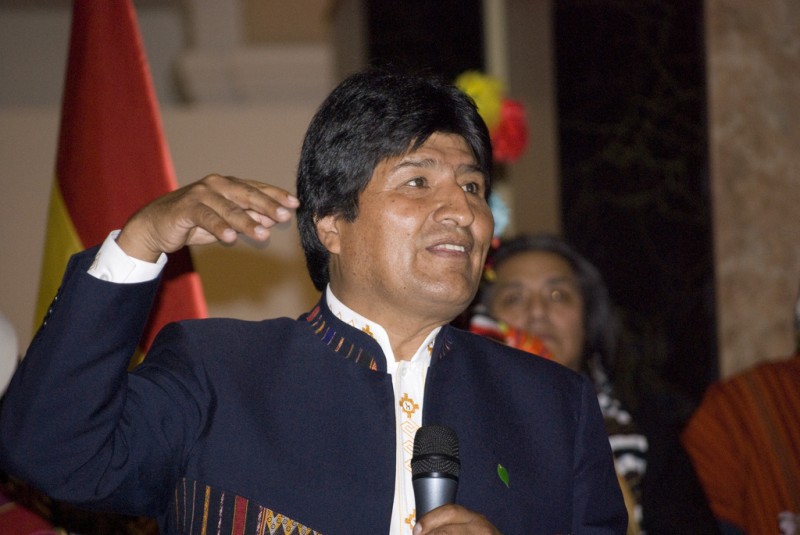
September 28, 2015 > Staff
Bolivia To Hold Referendum on Fourth Term for President
Next Article >
